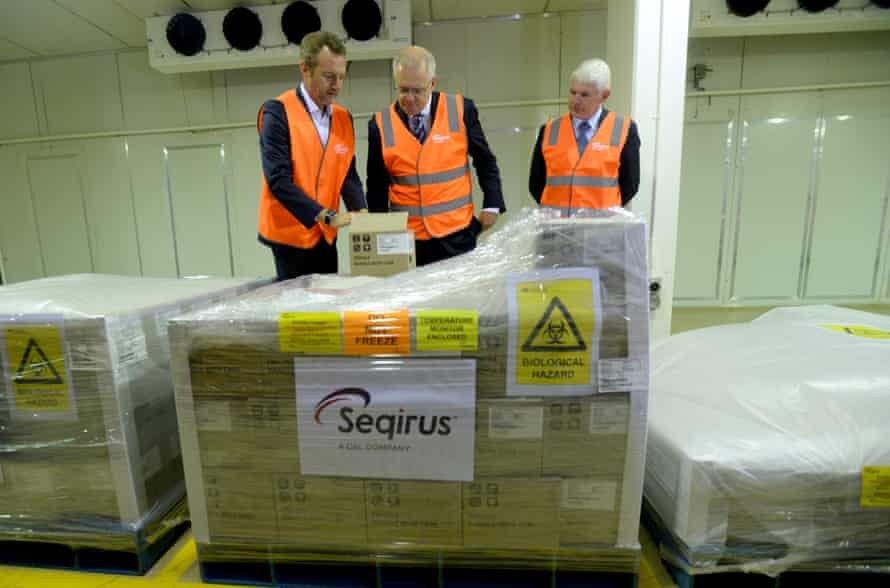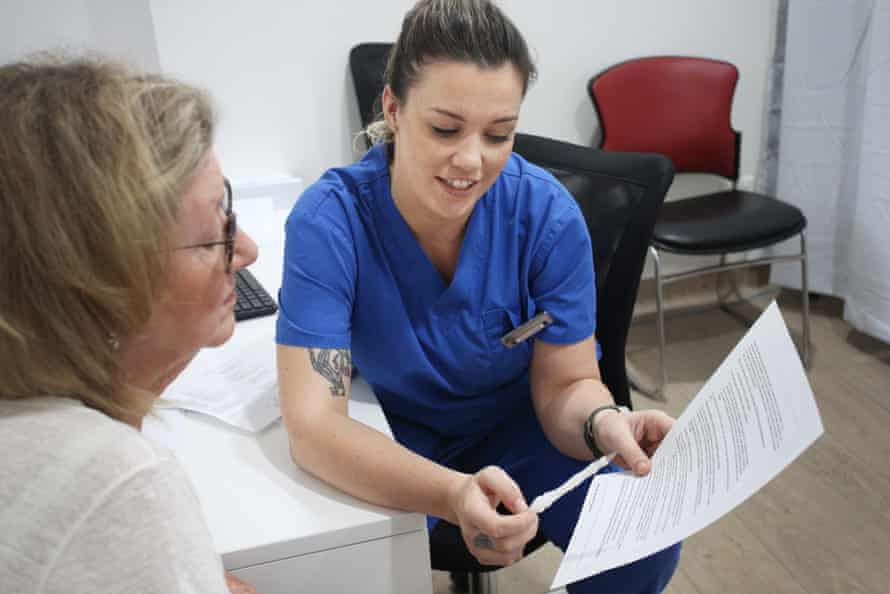Of all of the Covid-19 vaccines being rolled out worldwide, none has been quite so beleaguered as the Oxford University/AstraZeneca vaccine, with questions raised about its efficacy and its side-effects.
Given the pause in rollouts of the AstraZeneca vaccine elsewhere, what is the latest on who should and should not receive the AstraZeneca vaccine in Australia? Should Australians be worried given our reliance on it? And has the criticism of the vaccine to date been fair?
The latest on side-effects
On Wednesday, German health authorities in Berlin and Munich suspended rollout of the AstraZeneca vaccine for those under the age of 60 following new concerns around rare blood clotting. A day earlier, Canada made a similar move due to the same concerns, halting the rollout for people under age 55.
It follows a previous review of clotting by European and UK health authorities, with that data also reviewed by Australian regulators. The review reassuringly found the number of blood clotting cases reported after vaccination, both in the large clinical trials and during rollout across the world, was lower than that expected in the general population.
Following vaccination there has been a very small number of cases of a rare type of blood clotting disease (known as disseminated intravascular coagulation), as well as extremely rare cases of clots in the vessels draining blood from the brain (known as cerebral venous sinus thrombosis). Yet it has not been proven that these cases were caused by the vaccine.
Australia’s medicines regulator, the Therapeutic Goods Administration, notes that these conditions are also sometimes seen in people who have not received a Covid-19 vaccine. But Canada’s National Advisory Committee on Immunisation said new data from Europe suggested the risk of blood clots may be about one in 100,000, and it appeared women under age 55 were most at risk.

Are there any alternatives to AstraZeneca?
Australia is relying heavily on the AstraZeneca vaccine – rolling out 53.8m doses of it through the course of the year. The only other vaccine currently available in Australia is Pfizer’s mRNA vaccine, but with a fraction of the ordered 20m doses of this vaccine available in the early stages of the rollout, all but the most high-risk people will receive the AstraZeneca vaccine for now. A third vaccine known as Novavax is also being scrutinised by the Australian regulators and will be rolled out, if approved, by the end of June.
Who should not get the AstraZeneca vaccine?
For the time being, the Australian Technical Advisory Group on Immunisation recommends that any Covid-19 vaccination (not just the AstraZeneca vaccine) should be deferred in those who have a history of the following rare conditions:
-
People with a confirmed medical history of CVST.
-
People with a confirmed medical history of heparin induced thrombocytopenia, when people develop a low platelet count after being given the blood thinner heparin.
These are precautionary steps, in place until regulators receive and analyse more data. The measures are not in place because of any proven link between these conditions and complications.
People with a history of severe allergic reaction to any component of the vaccine should not take it, and this applies to the Pfizer vaccine as well. Neither vaccine is approved in Australia for those under 18.
Professor Greg Dore, an infectious diseases physician and researcher with the Kirby Institute at the University of New South Wales, said overall, “I don’t think there’s any group that should preferentially have one vaccine over the other. If you want to get to substantial of vaccination coverage sometime this year, we need to go with the current strategy. But Novavax may also be available from June.”
What about efficacy? Won’t Pfizer’s vaccine protect me more?
It is useful to remember that when the pandemic was originally declared, the World Health Organisation said a vaccine efficacy of 50% or above was required to control the virus, and anything above that would be welcome.
The latest data from AstraZeneca puts the efficacy of the vaccine protecting against symptoms at 76%, which occurs 15 days or more after receiving two doses given four weeks apart. Clinical trials put the vaccine confidence interval at between 68% and 82%. This means there is a 95% chance that the true efficacy of the vaccine is between 68% to 82%, making it similar to other vaccines including Pfizer’s.
As more data is added, the confidence interval usually tightens and provides more certainty. Studies have found efficacy increases even more, to 82.4%, if the doses are given at least 12 weeks apart, and Australian regulators have recommended a 12-week interval.
This really isn’t too different from the efficacy of the Pfizer vaccine, which has an efficacy of above 89%. Both of the vaccines to date appear to have 100% efficacy when it comes to protecting against severe disease and death.

Isn’t there concern about elderly people getting the AstraZeneca vaccine?
It is true that there is still limited data available for the efficacy and safety of the vaccine in individuals over 65 years of age.
But the TGA states “the vaccine has been shown to create an immune response in this group and can be used based on the efficacy and safety demonstrated in the general clinical trial population”.
As with any patient, the decision to immunise an elderly patient depends on comorbidities and their environment (such as if they are in aged care). Further information from ongoing clinical trials and post-market monitoring is expected in coming months.
Head of the TGA, Professor John Skerritt, has made it clear there is no upper age limit for the vaccine.
“Our analysis of the data gives us no reason to suspect that the vaccine would not be fully efficacious in older groups,” he said.
Laureate Professor Peter Doherty, who shared the 1996 Nobel medicine prize with Swiss colleague Rolf Zinkernagel for their discoveries about transplantation and immunity, is 80 years old and received the AstraZeneca vaccine on Wednesday.
“I’m happy to be the poster boy for the AstraZeneca vaccine,” he told Guardian Australia. “It’s worked very well and has been given to very large numbers of people in the United Kingdom, and they’ve given it side-by-side with the Pfizer vaccine and both appear to be working about as well as each other. It’s worked really well in Britain. So I’m pretty happy to get the AstraZeneca vaccine.”
Are there other side-effects of the vaccines?
There are some social media posts doing the rounds spreading misinformation and fear about adverse events and side-effects. It is important to remember that almost every health regulator in the world, as well as independent panels of consumer advocates, researchers, doctors and scientists are reviewing safety and side-effect data all the time. It would be impossible to hide any serious adverse reactions.
For any drug, whether a vaccine or other medicine, rare, “one in a million” side-effects can only ever be known once it is rolled out widely. There can never be enough people in a clinical trial to detect these events. But these are so rare that the disease itself, in this case Covid, is often much riskier to health.
“When you give a drug to 50 million people, when you search for side-effects, you need to remember some of the issues detected are things that just happen anyway and would have happened whether the person was vaccinated or not,” Doherty said.
The most common side-effects are mild and are similar across the Pfizer and AstraZeneca vaccines: tenderness and pain at the injection site, feeling tired, chills or fever, headache, and joint pain or muscle ache. People receiving the AstraZeneca vaccine may also more frequently experience nausea than those receiving Pfizer’s, though it is still common with the Pfizer vaccine.
Independent expert review in Australia of cases of suspected anaphylaxis (severe allergic reaction) following the AstraZeneca vaccine concluded that there is no increased risk of anaphylaxis associated with the vaccine above the expected rate for any other vaccine.
“Anaphylaxis is a very rare side-effect that can occur with any vaccine,” the TGA said, and it is important to note people are monitored for 15 minutes after receiving the vaccine.
This content first appear on the guardian
